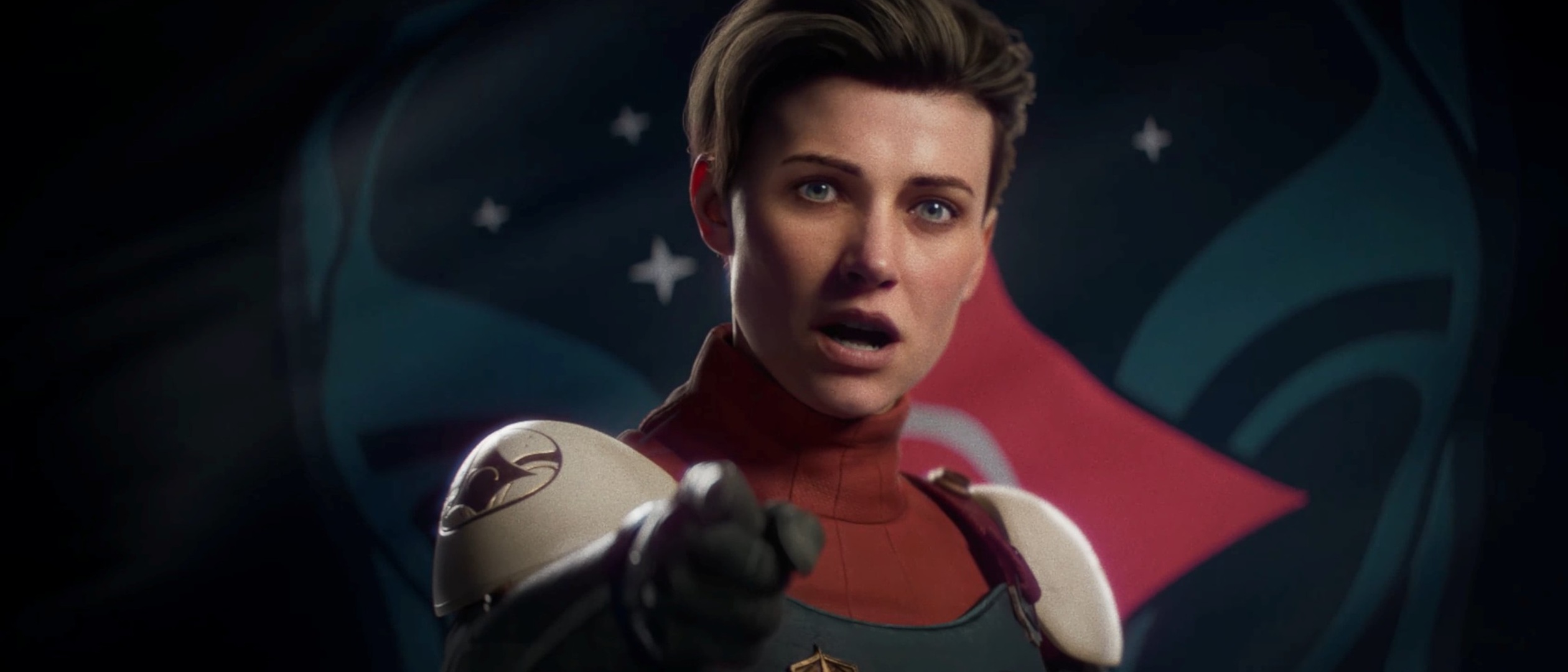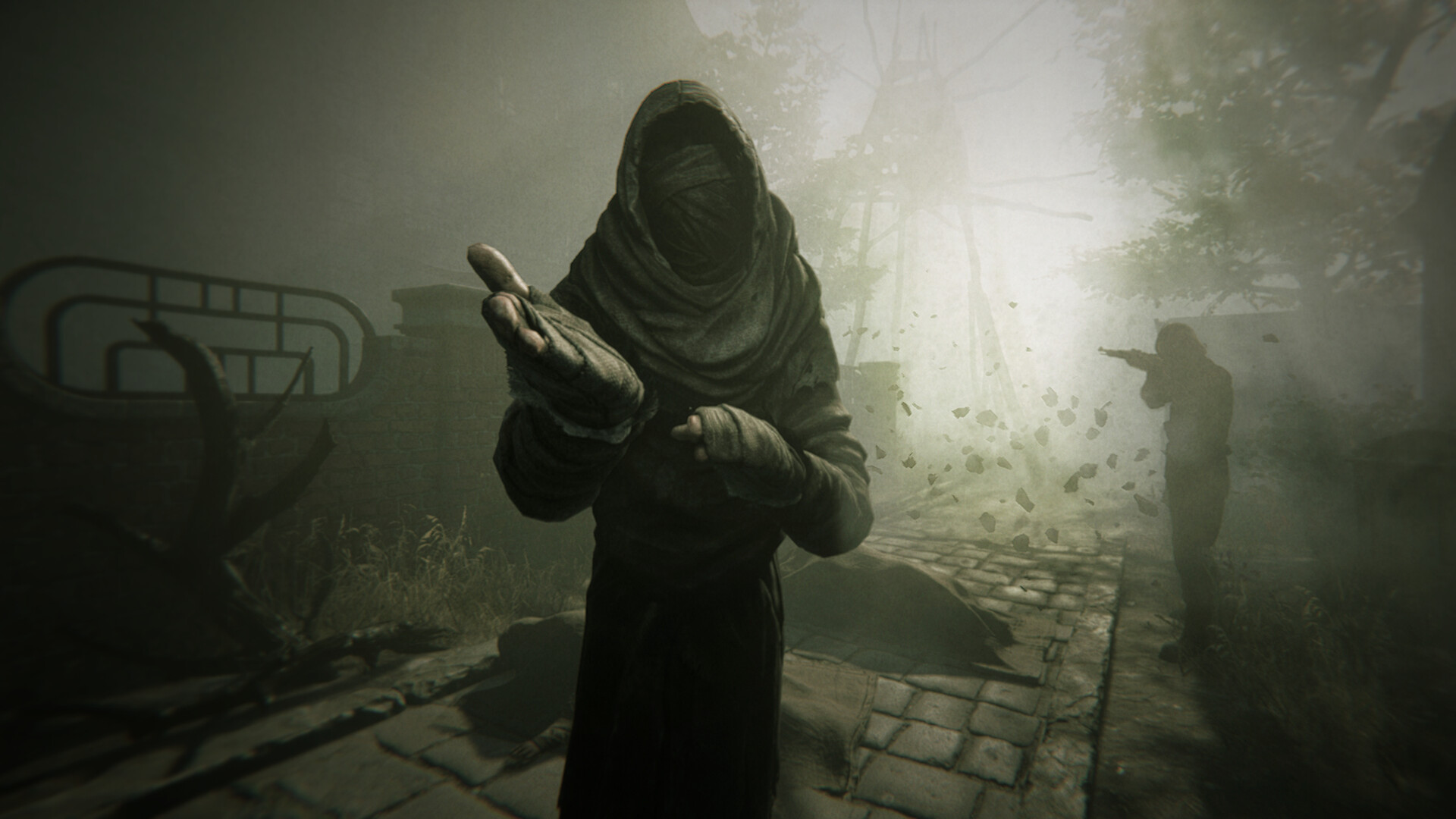Our Verdict
An RPG with a great sense of fun and whimsy, as well as surprising depth to its character building.
PC Gamer's got your back
What is it A breezy first person RPG in a future that's part raygun, part deco.
Release date October 29, 2025
Expect to pay $70/£60
Publisher Xbox
Developer Obsidian
Reviewed on RX 9070 XT, Core i5 12600K, 32 GB RAM
Multiplayer No
Steam Deck Unsupported
Link Official site
The Outer Worlds 2 was a slow burn for me, and it was a midgame encounter that finally cemented it in my mind as not just a good RPG, but a really excellent one.
The first half of the game crescendos with a pair of classic Obsidian conversation boss fights, and I had a big, dumb smile on my face as I contemplated long, scrolling lists of dialogue options—some available to me, some greyed-out—gated by different skills, background traits, quest choices, and even an out-of-the-way optional conversation I'd had over 10 hours previously.
Since I had a ton of points in speech and had gone for nonviolent resolutions whenever possible, I was able to pull off a satisfying "everybody lives!" conclusion to this midgame climax. Comparing notes with PCG guides writer Sean Martin, who adopted a more trigger-happy playstyle, he was locked into a less happy path where somebody had to die, with the choice potentially locking him out of at least one ending and turning a companion hostile. This nexus of consequences and options stemming from my prior choices and the type of character I made is pure RPG to me, and exactly what I look for in an Obsidian game.
I liked but didn't love the first Outer Worlds—it felt like a compromise RPG for genre newcomers, one which was fun enough and went down smooth, but didn't leave a strong impression. The Outer Worlds 2 is a more ambitious, complex, and surprising game, while still being easy to grasp as far as big RPGs go.
It doesn't have the standard-setting sense of scale, simulation, or reactivity that's wowed me in recent RPGs like Baldur's Gate 3, Kingdom Come: Deliverance, or Disco Elysium, but The Outer Worlds 2 is a great action-RPG whose skill system, writing, quests, and level design seriously impressed me as a longtime CRPG head who likes his games crusty, impenetrable, and unfair.
Far flung
The Outer Worlds 2 takes place in a new space colony, Arcadia, completely separate from the first game's Halcyon. The oppressive, collectivist, and highly advanced Protectorate of Arcadia has been invaded by the consolidated megacorp, Auntie's Choice, formed from a merger of two of the first game's cheekily evil companies.
One thing I'd never accuse The Outer Worlds series of is subtlety: The sequel's big conflict pits two caricatures against each other. It's mandatory stints in government re-Neducation camps vs 20-hour work days with no bathroom breaks, and it made me miss the more well-rounded, thought-provoking conflicts in prior Obsidian games like Fallout: New Vegas, Pillars of Eternity, or this year's Avowed. But it does a good enough job of lending stakes to The Outer Worlds 2's take on Forbidden Planet raygun swashbuckling, and there are great human dramas and smaller conflicts sprinkled throughout that really got their hooks in me.
Keep up to date with the most important stories and the best deals, as picked by the PC Gamer team.
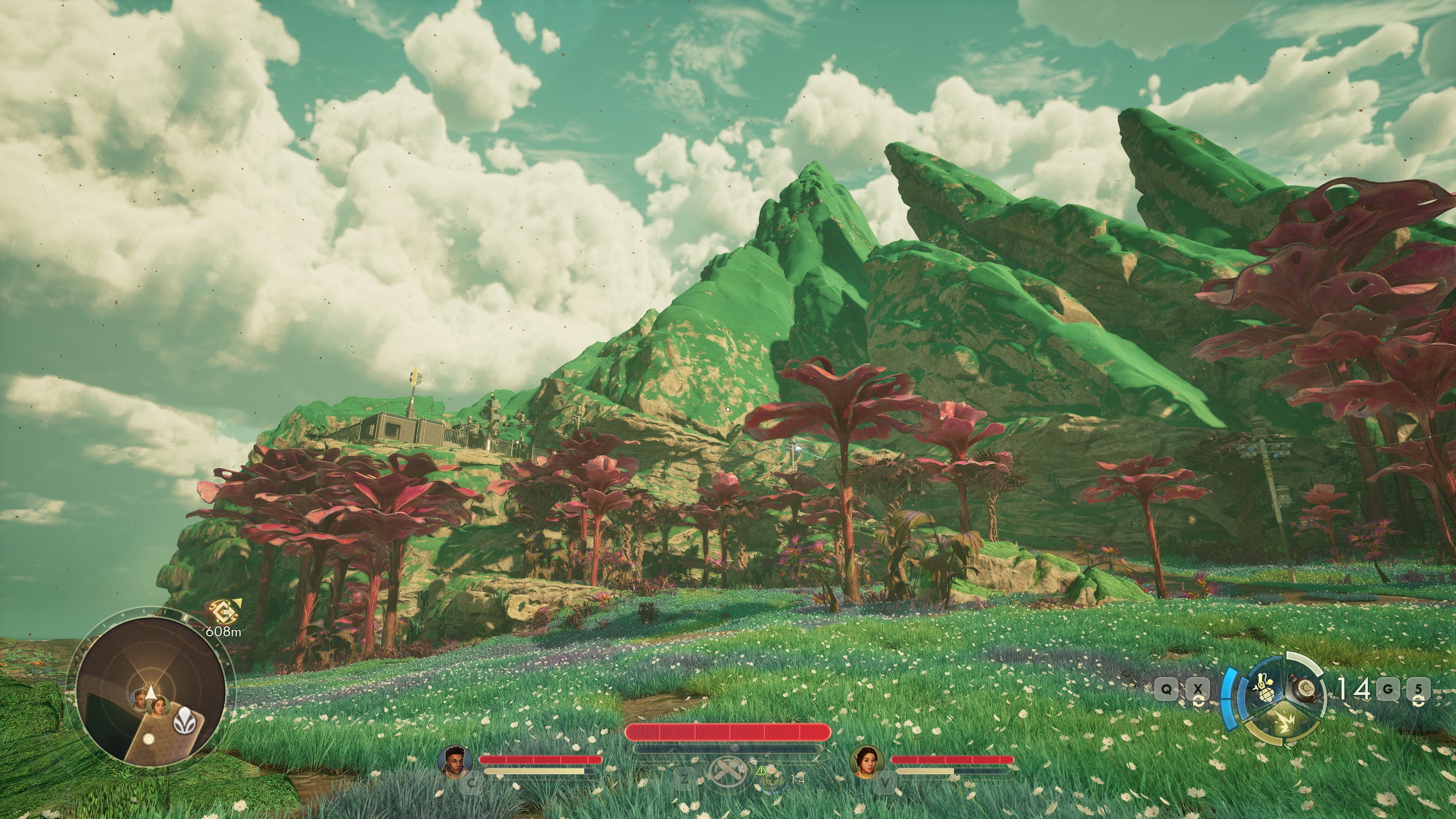
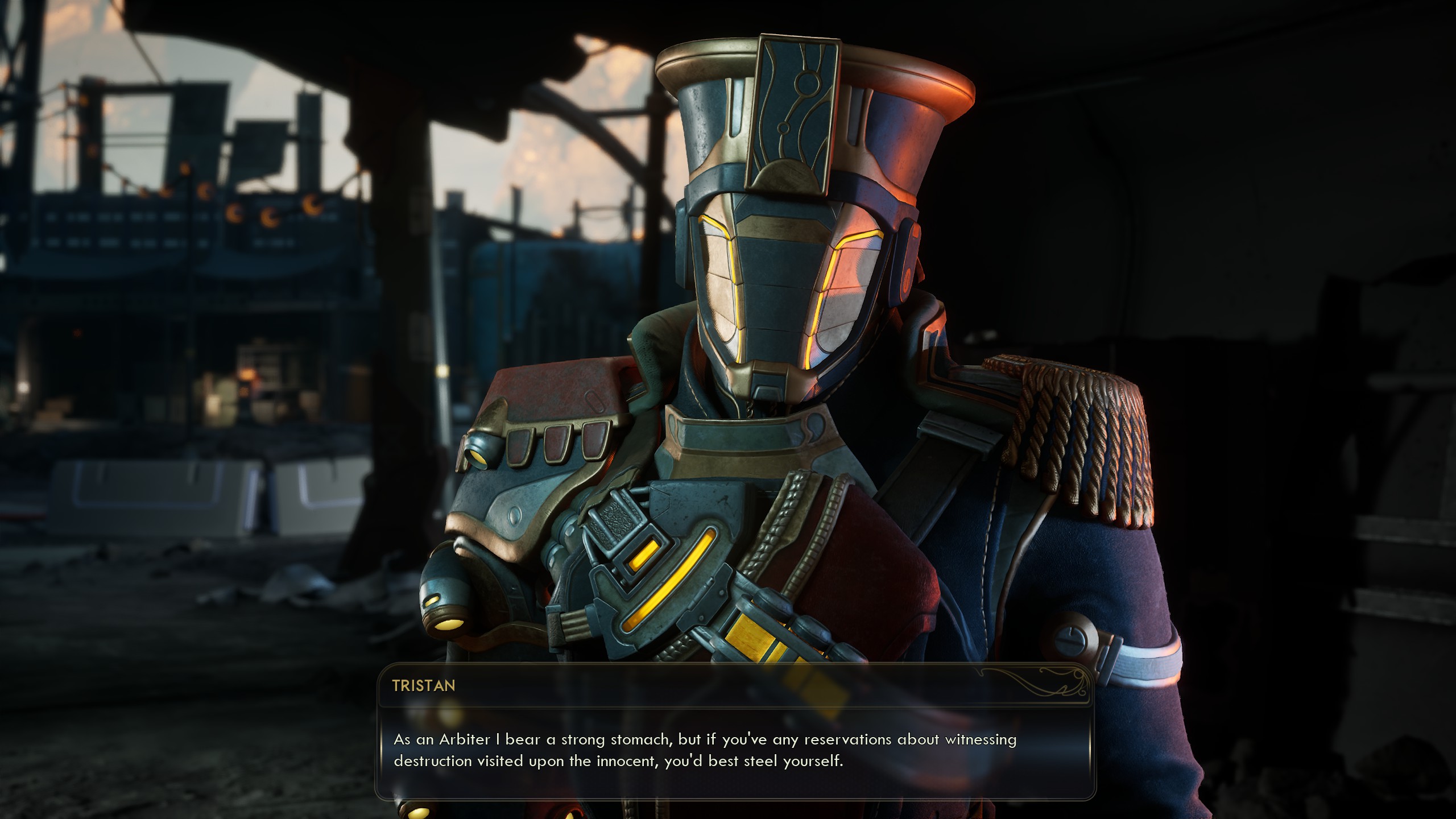
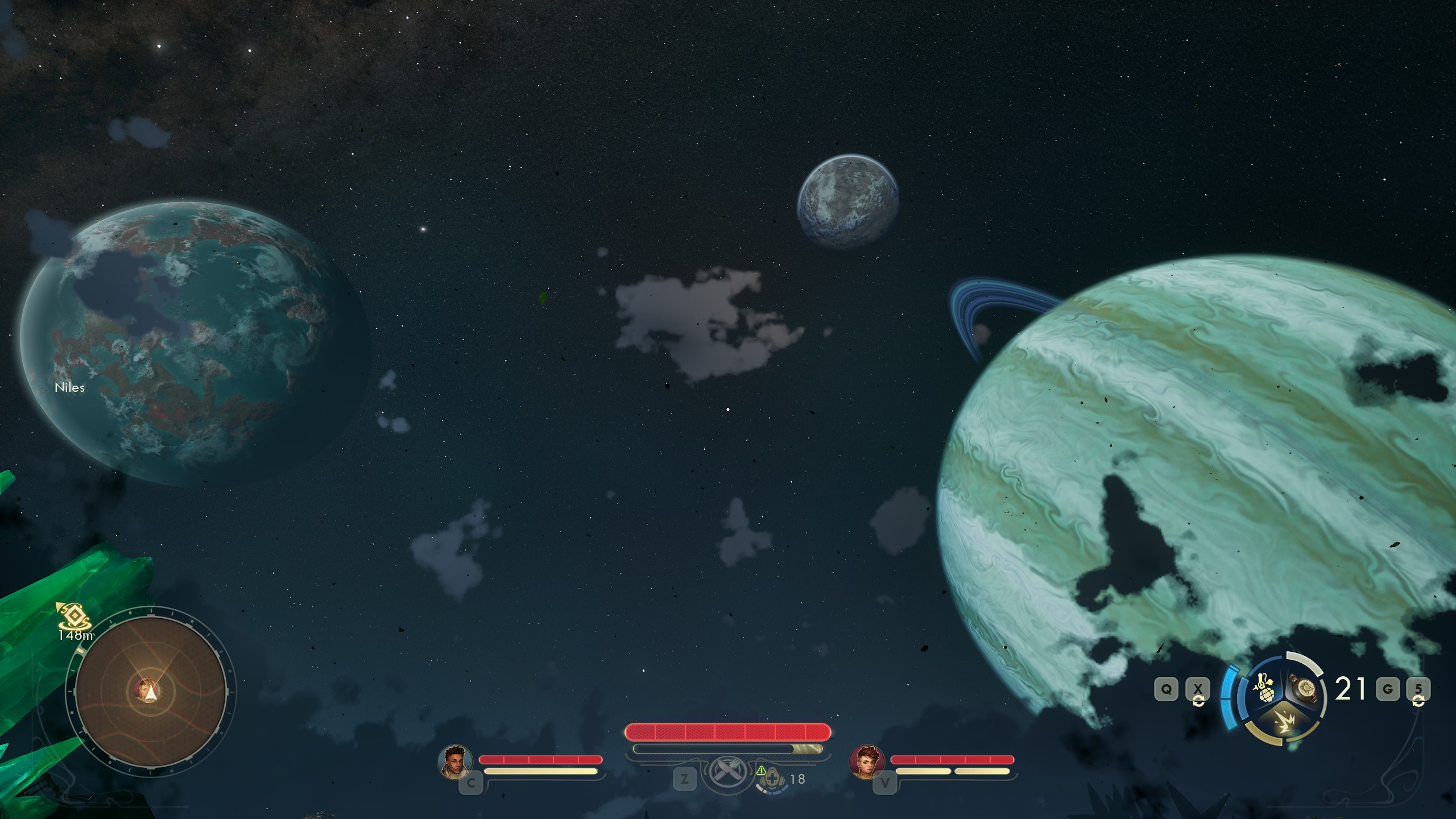
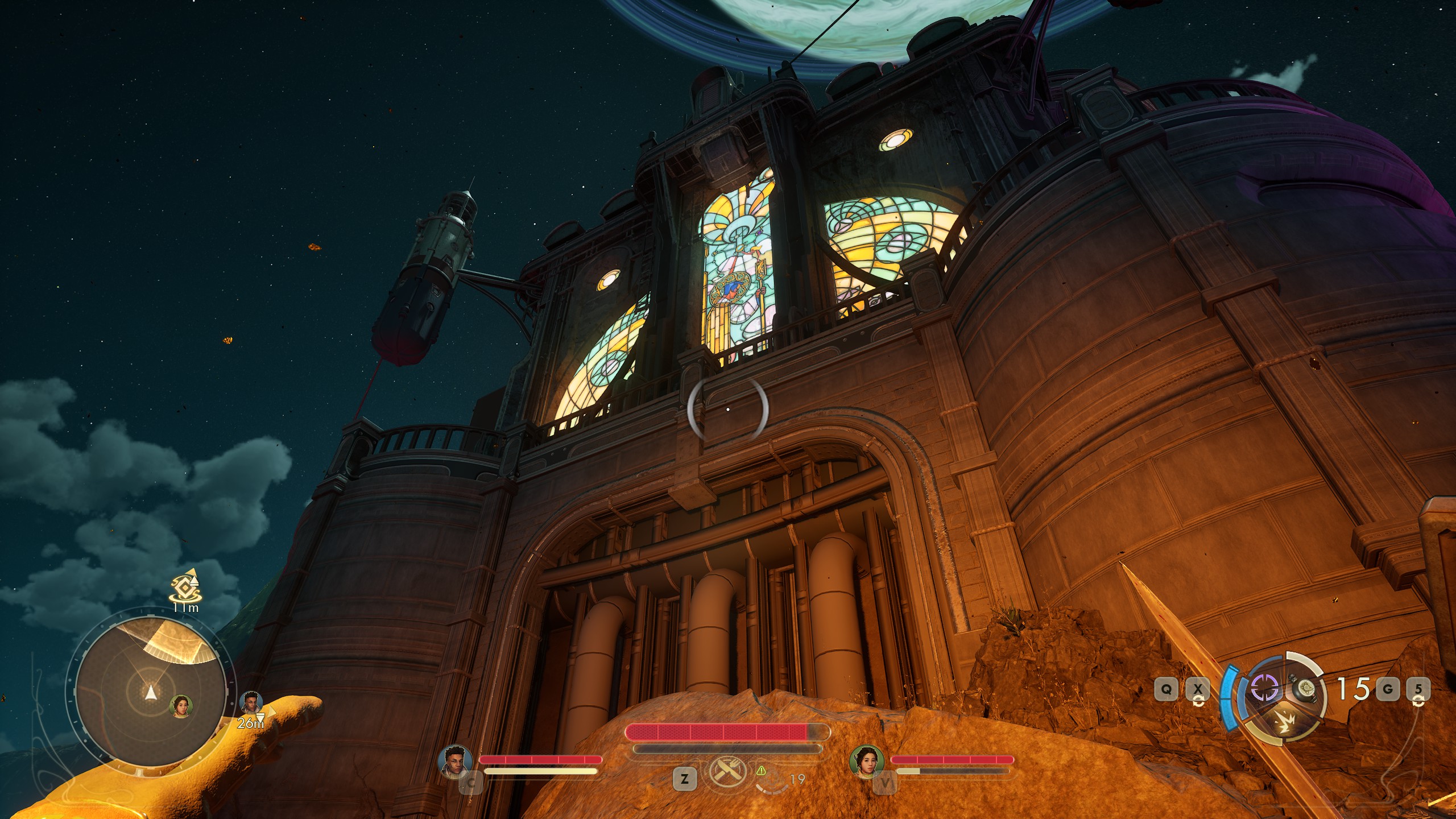
I really dig The Outer Worlds 2's companions as well: Even Nice Guy Human Warrior Starter Buddy Niles Abara has an interesting twist to his character, while hammer-wielding Judge Dredd space cop Tristan Rao quickly stole my heart by more or less speaking in all-caps. Another companion has a complicated, spoiler-heavy recruitment mission where it's not even clear from the outset they can join your crew, and it's perfectly easy to kill them by mistake.
I love that, and there are multiple points in the game where each companion might leave you for good or outright turn hostile, depending on your choices. There's friction and clashing personalities in this ensemble, something I found sorely missing in last year's Dragon Age: The Veilguard.
Crunch the numbers
The Outer Worlds 2 manages a real coup by streamlining the first game's RPG system to ultimately build something with greater depth. Attributes are gone, and at character creation you pick positive and negative traits, background, and tagged skills.
There are 12 skills in total, and tagging one gives you two free points, while you get another two to spend at every level up. I felt constrained in a good way by this system: You can't minmax yourself into being good at everything (or everything that matters) like you might in Fallout or Baldur's Gate 3, and every build will have some opportunities closed to it.
The best perks—like the one that applies half of your sneak attack damage to regular melee attacks—require steep skill investments. Ditto for the most impactful skill checks in dialogue or exploration. These are static checks where you either have enough points or you don't, as opposed to dice rolls you might cheese through luck or quickloading.
A full pacifist playstyle should be possible without resorting to glitches.
With that in mind, I found investing in four of the 12 skills had me comfortably at capacity in terms of keeping up with tough checks and getting the perks for my build. There were often quest solutions or routes that were completely closed to me because of how I built my character, and I appreciate that. It makes those character building choices more meaningful, and results in one playthrough potentially feeling very different from another. The Outer Worlds 2 is also great at offering multiple solutions to the same problem: A high speech check can sometimes be circumvented by a trait or quest decision, while locked doors often have alternate paths or keys you can search out.
On that note, I played a sneaky, talky guy—stealth, lockpick, speech, melee weapons—and I had a blast. This isn't Dishonored, but the ample secondary paths—usually vents, but not always—distraction tools, and sneaking-specific gear all made the playstyle feel supported and powerful. I did a lot of gnarly sneak attack knife takedowns (there are no nonlethal weapons), but from what I can tell, a full pacifist playstyle should be possible without resorting to glitches. It'd be a bit janky at points, and you'd be locked out of some side quests and story options, but it seems doable and not especially tedious.
Flawed hero
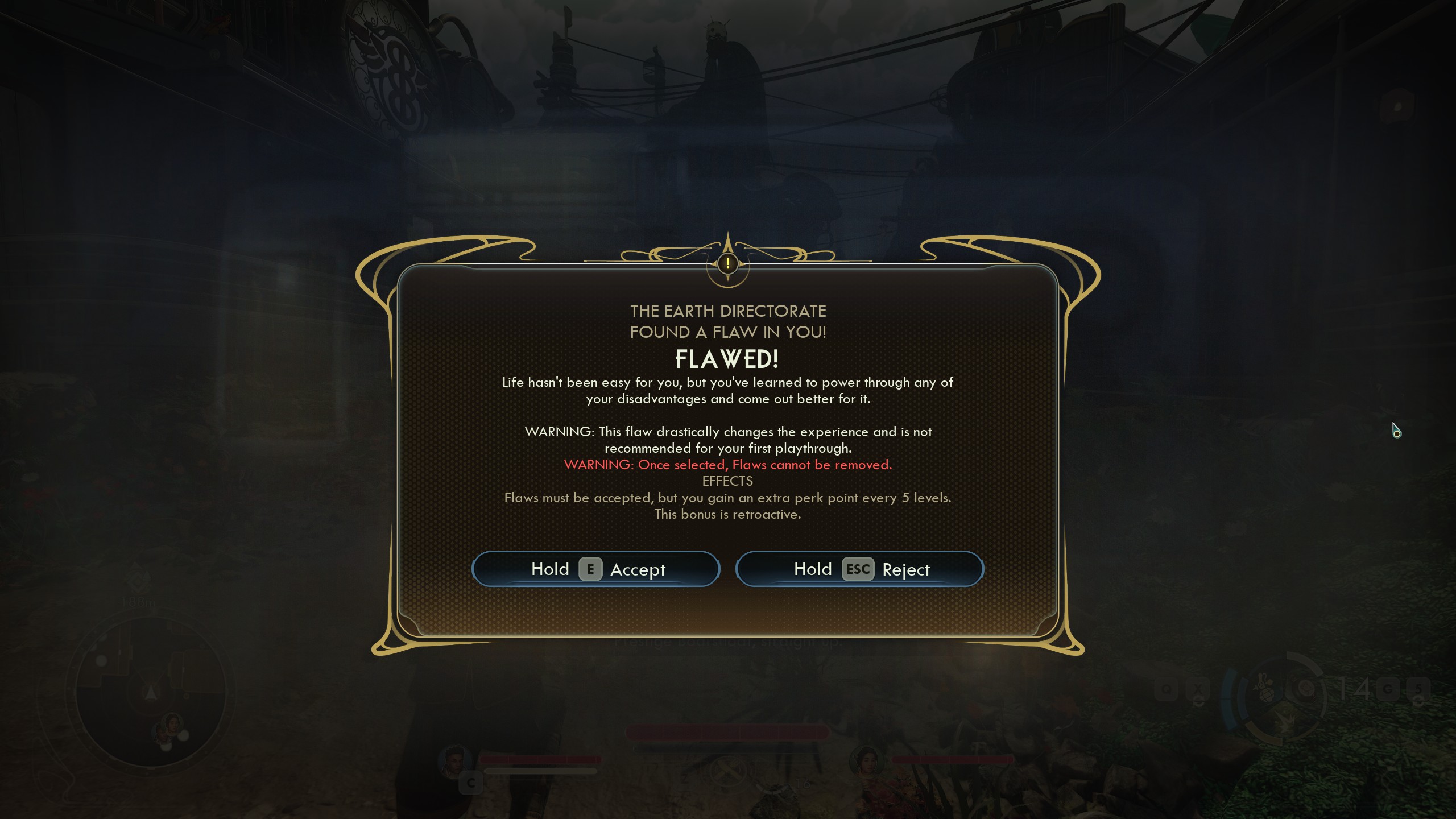
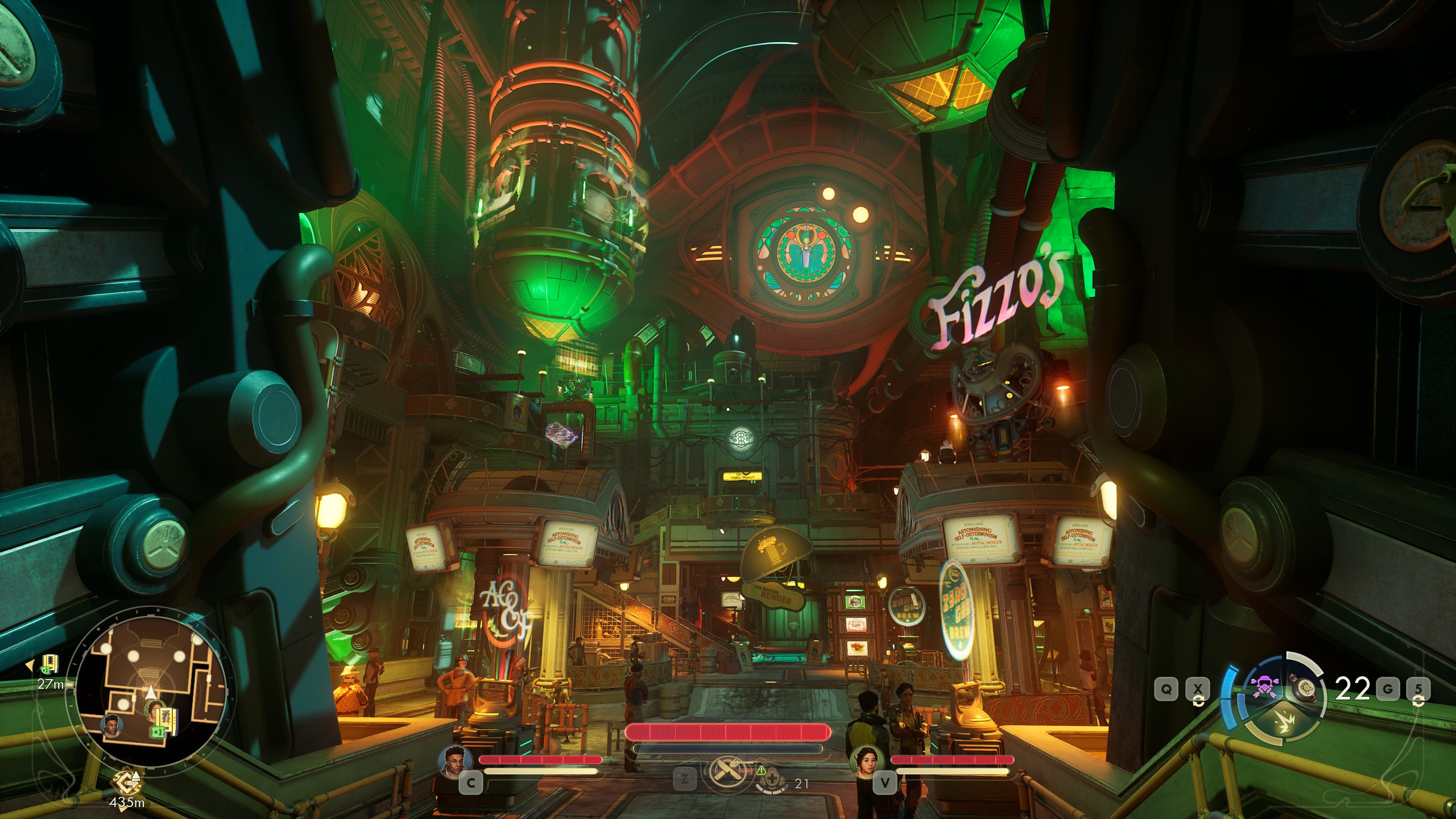
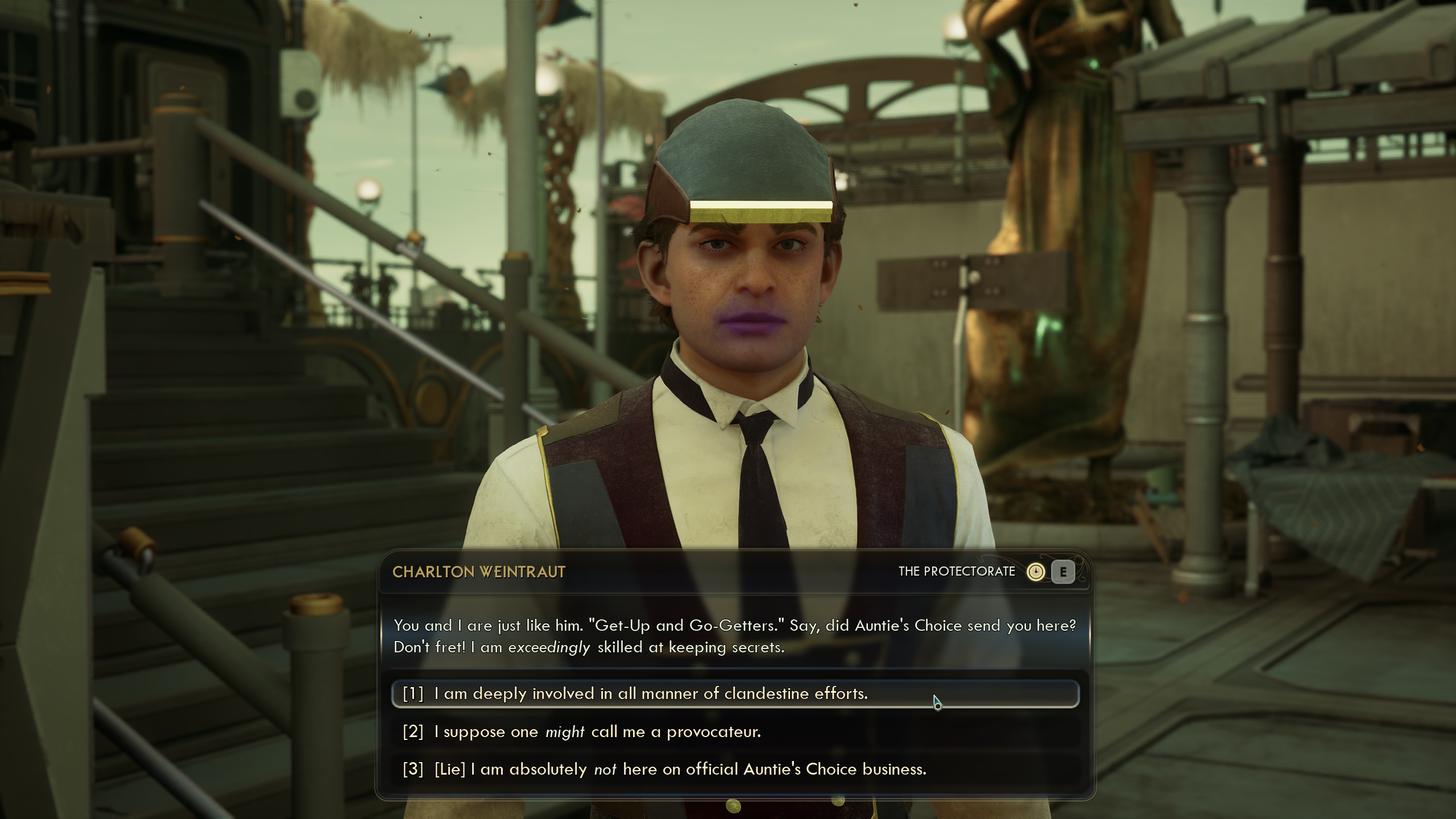
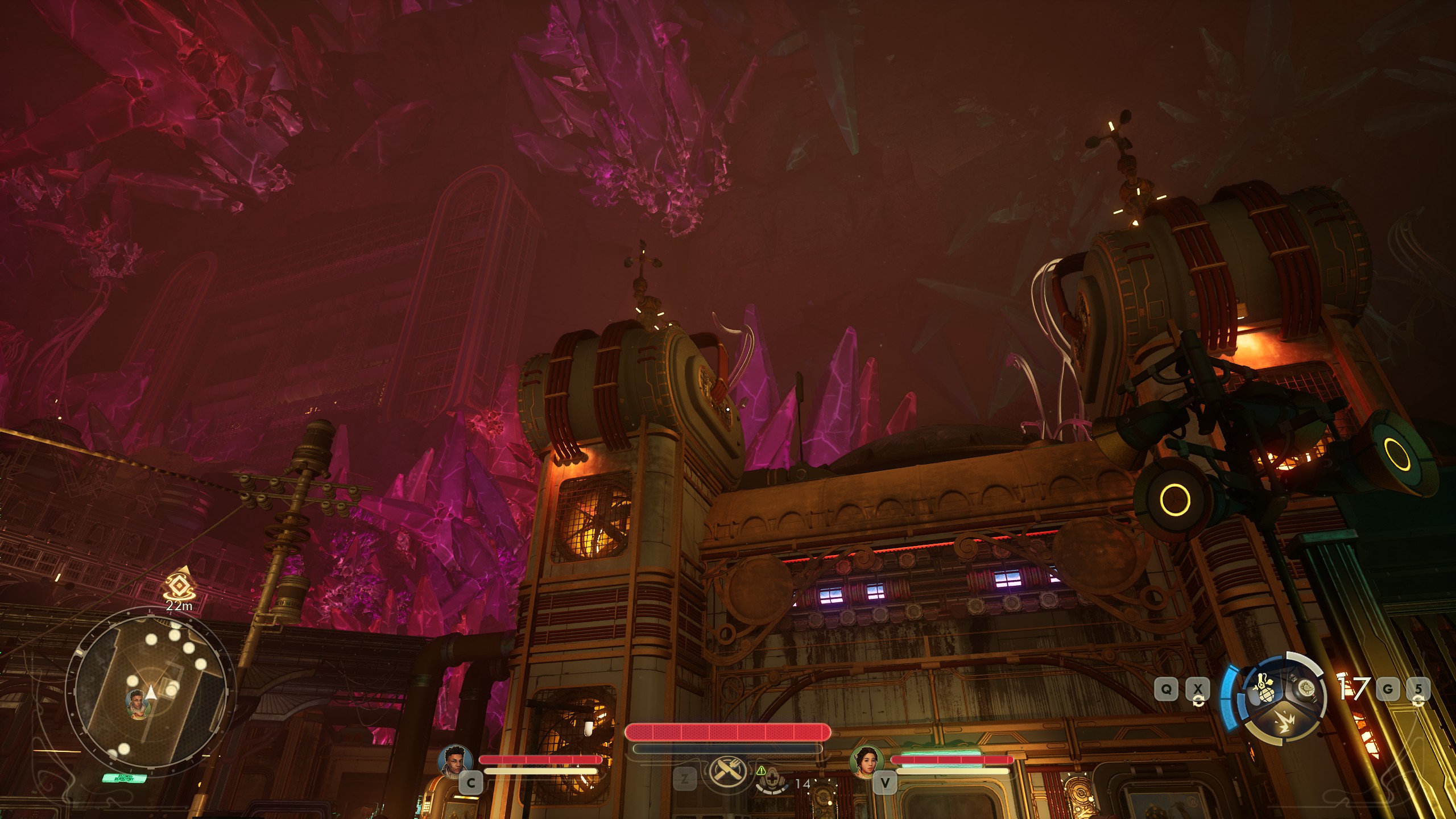
So far, that's all well-structured and balanced, but not anything entirely new. The Outer Worlds 2 does have one genuinely surprising innovation, though, and that's the flaws system. This wasn't anything to write home about in the first game, and I did not come in expecting to love the new mechanics as much as I did.
You're given the option to accept or reject a flaw once you hit hidden thresholds of player behavior: Combat tactics, how you talk to people, and what items you choose to keep, sell or dismantle are a few examples. Each flaw has a detrimental and positive effect, and is a potential game-changer (or game-ruiner). There's a real sense of humor and imagination to the behaviors the game keeps track of and calls you out on, and it strikes me as such a cool RPG experiment to alter characters not only based on conscious decisions by the player, but how they unconsciously approach the game.
I was able to stack enough bonus sneaking move speed to crouch-walk as fast as I sprint.
My favorite by far has been Foot In Mouth Syndrome, which you're offered after skipping enough dialogue lines. You get a pretty substantial bonus to all experience points received, but also have a timer counting down when selecting dialogue choices. If you take too long, the game will just do it for you, a karmic punishment for frequent dialogue skippers.
Hoovering up people's stuff when they aren't looking unlocks a Kleptomania flaw where you'll randomly steal nearby items in settlements and have to deal with Johnny Law when you're inevitably caught, while a Flawed option from accepting a lot of flaws offers a bonus perk every five levels, but makes you automatically accept every subsequent flaw that comes your way.
Sneaky bug-man
The Outer Worlds 2 is a great game for buildcrafting sickos: I was able to stack enough bonus sneaking move speed to crouch-walk as fast as I sprint, and I've selected abilities that make my combat knife hit harder than a two-handed space warhammer. There are a ton of items and perks to make non-combat skills contribute to your damage: The sneak attack damage perk I mentioned earlier comes to mind, as does a nifty purple void scythe that scales off the "Science!" skill. My favorite is the Space Ranger perk, which gives a damage bonus based on your speech skill, and opens up dialogue options that sound like Zapp Brannigan.
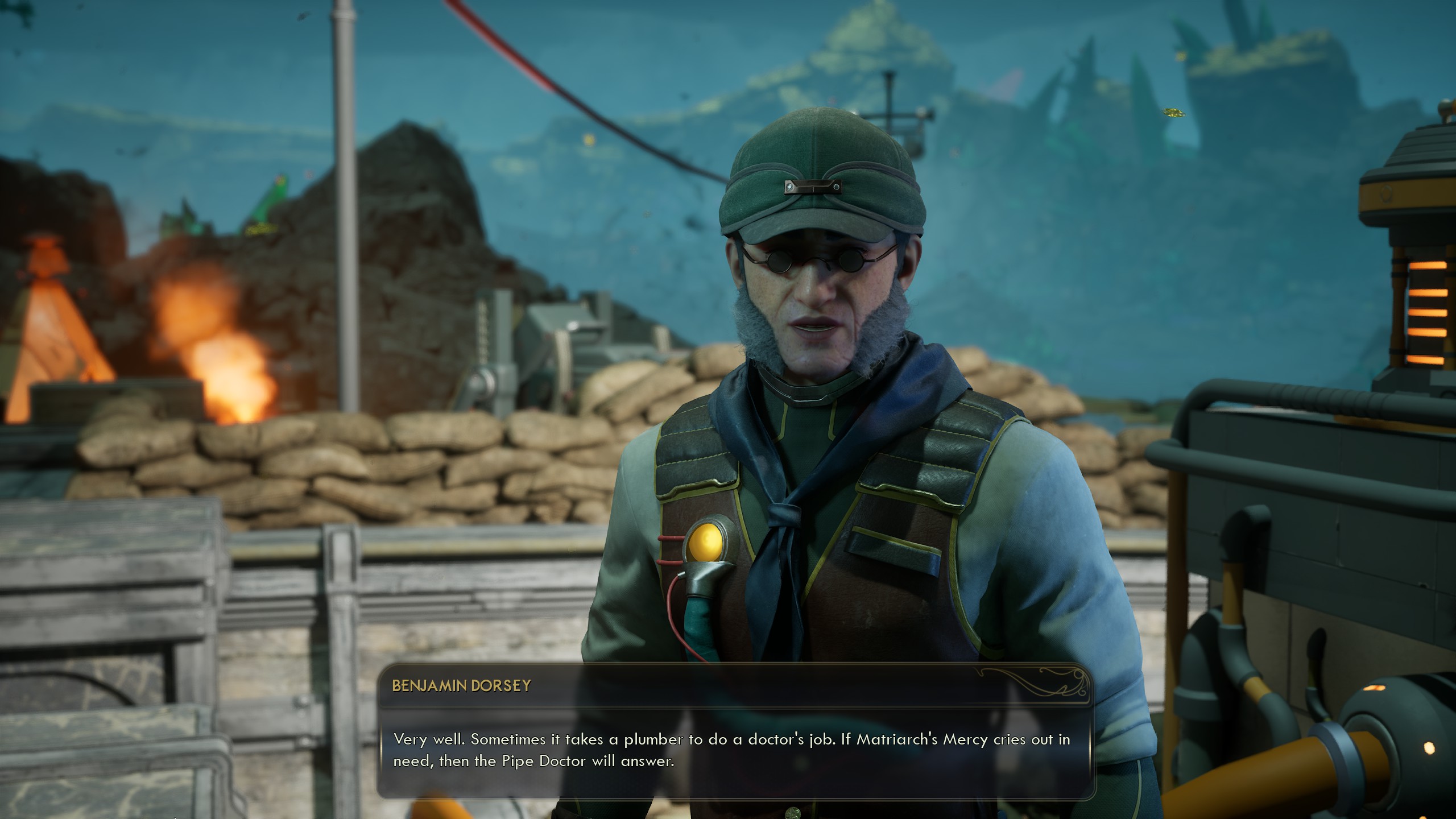
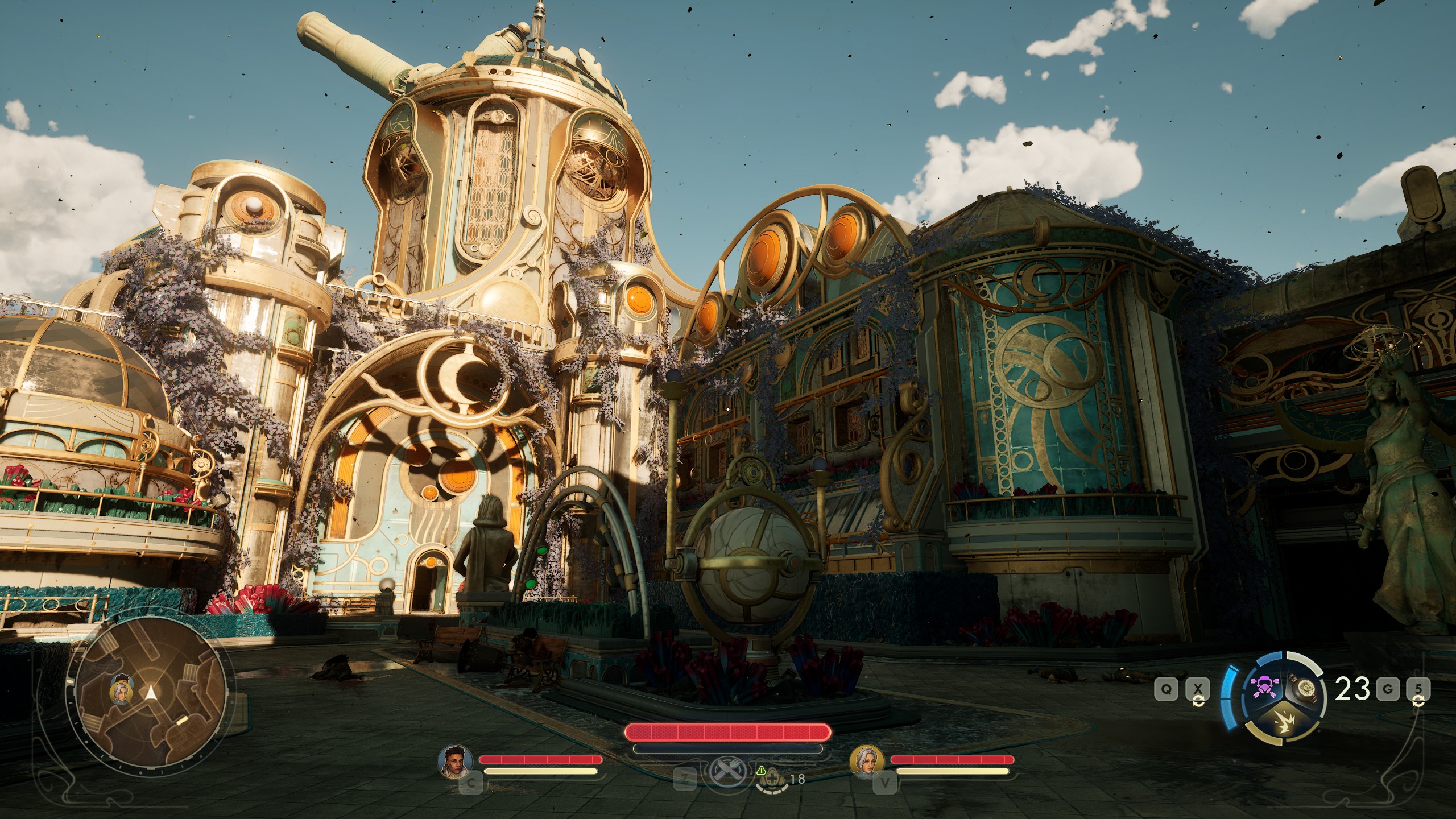
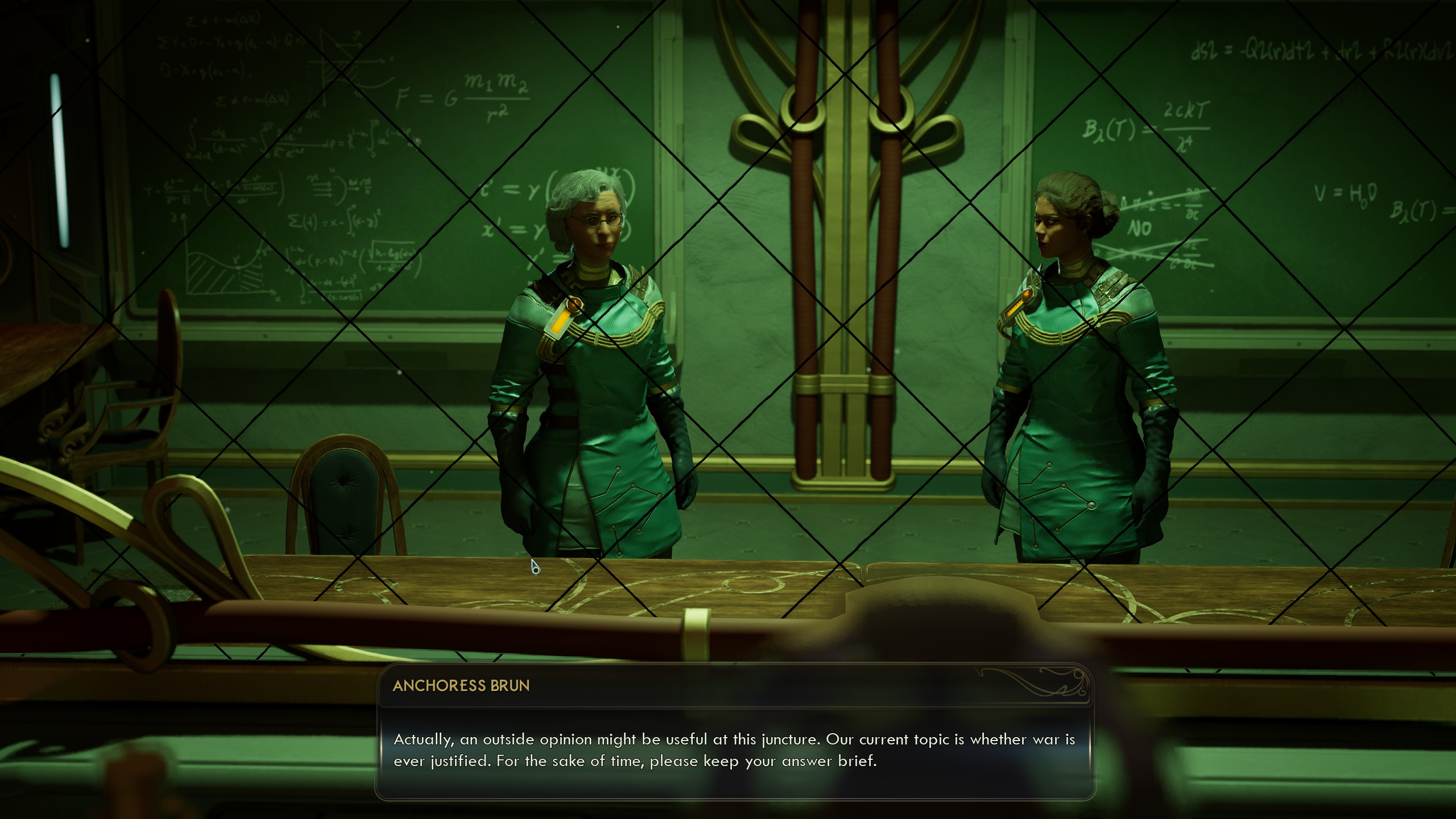
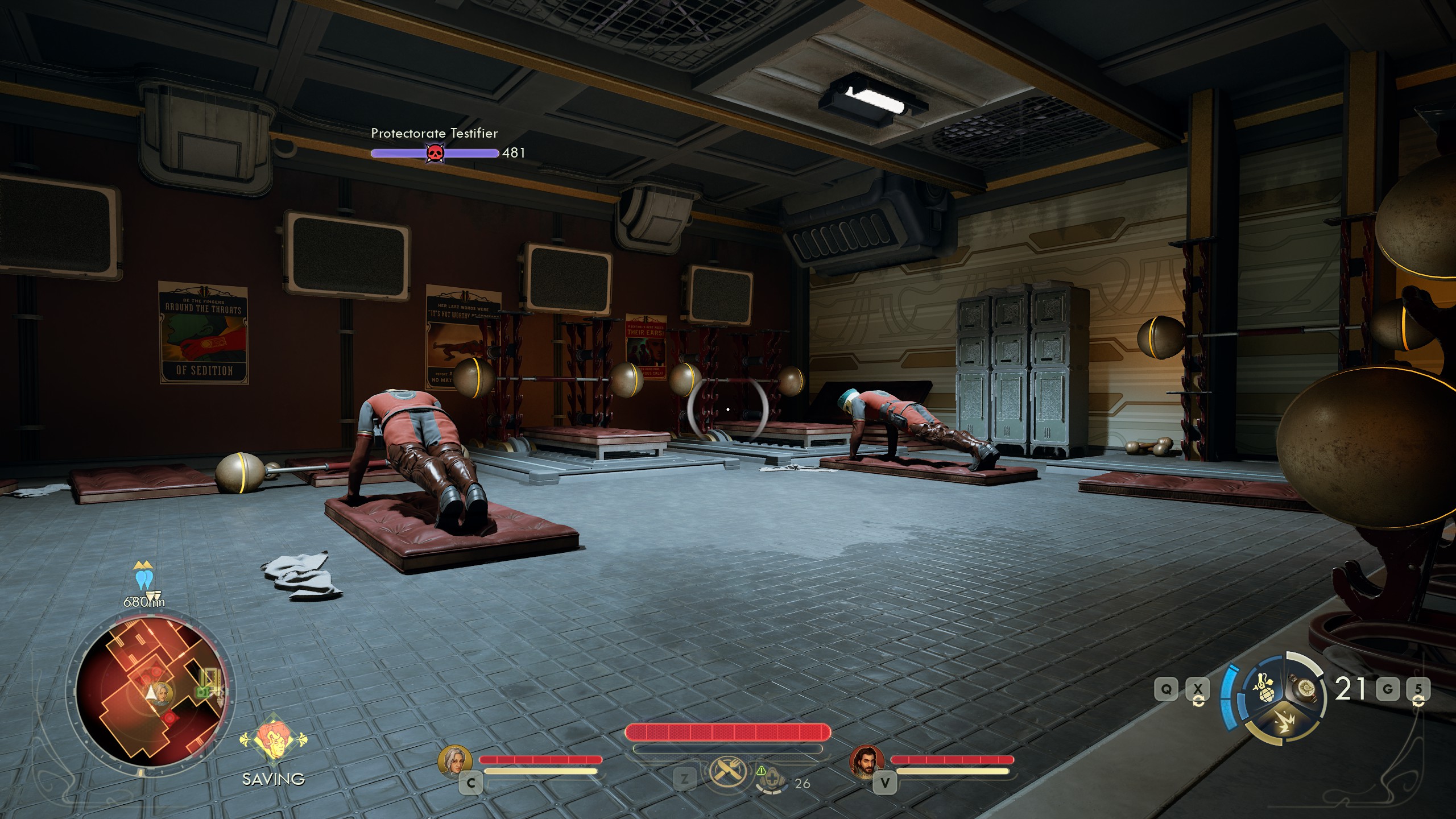
As for moment-to-moment combat, you've played this game before. The Outer Worlds 2 feels comparable to Fallout 4 when rubber hits the road: Much better than something like New Vegas or Skyrim, but definitely a worse action game than Cyberpunk 2077, or even Obsidian's own Avowed from earlier this year. The guns all feel great, but melee weapons are imprecise and sluggish, a feeling ameliorated somewhat by the satisfying impact of chunky two-handers, or the absurd spectacle of a dinky knife slash obliterating a miniboss' health bar thanks to a well-optimized build.
This is also an RPG with a really bad reverse difficulty curve and uneven challenges throughout. The first few hours were touch and go, especially since I started on a higher difficulty based on an easy demo experience. After a few hours of things dialed down to Normal, I was enough of a ninja god to need to crank the difficulty back up again. But 25 hours in, I ran into a new species of lizard gorillas on a later planet who could kill me in one hit, and were tougher than most boss fights.
Satisfaction guaranteed
It's a more or less stable experience, but I've had a few bugs take a piss in my coffee, and The Outer Worlds 2 runs "good for an Unreal Engine 5 game" as opposed to "good." One of the worst glitches was when my man Tristan spawned underneath the map on my ship when I needed to talk to him and close out a quest, an issue that persisted when I loaded a save or left and came back. I even saw companions have one-sided ghost conversations with the absent Tristan while he was stuck in the walls, their entreaties met with silent subtitles. Thankfully, a combination of loading older and newer saves over and over shook something loose and delivered him from the Shadow Realm.
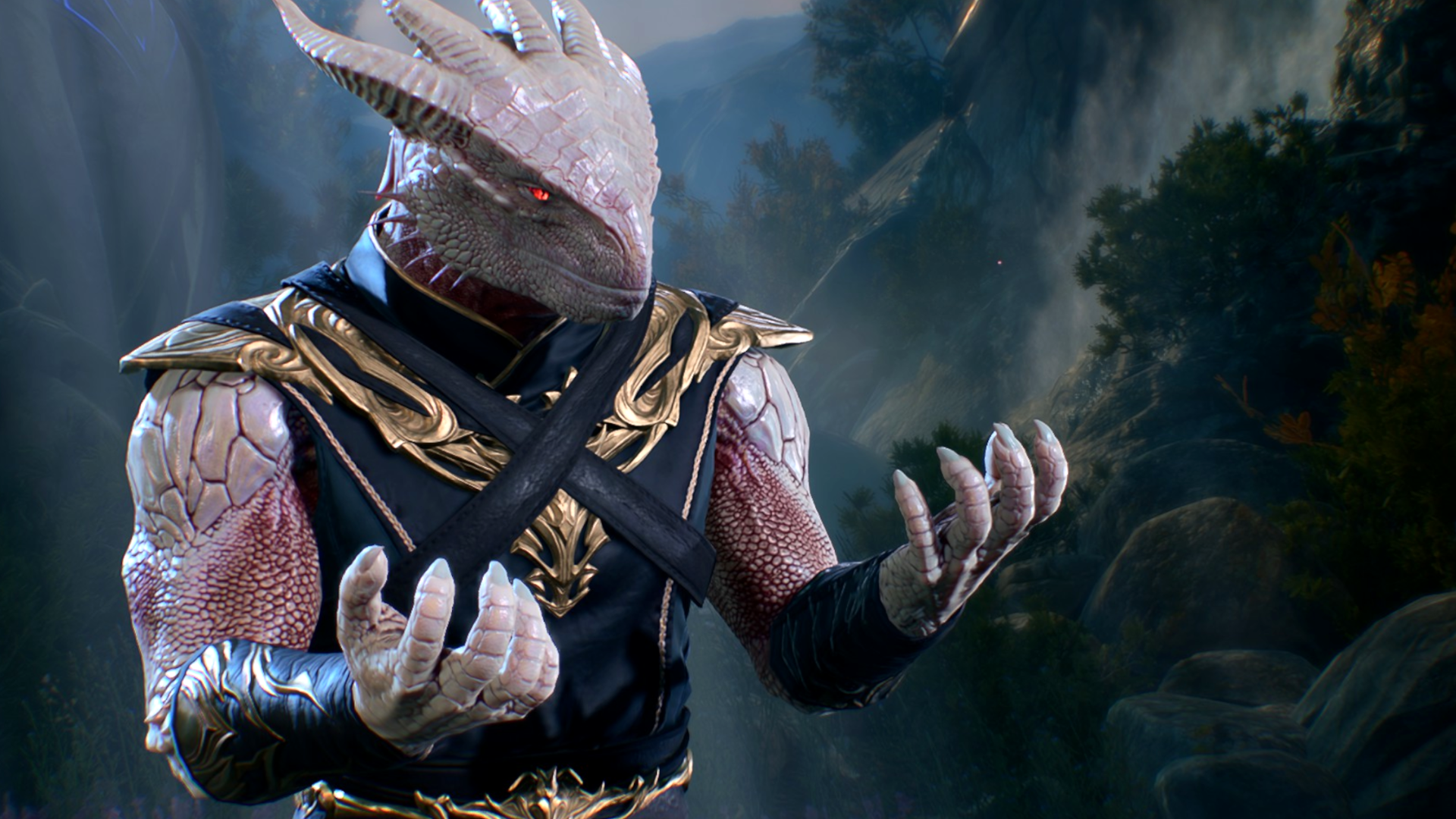
2025 games: Upcoming releases
Best PC games: All-time favorites
Free PC games: Freebie fest
Best FPS games: Finest gunplay
Best RPGs: Grand adventures
Best co-op games: Better together
My other big glitch frustration has been some wonkiness around enemy aggro and detection, which is particularly noticeable on a stealth build: Sometimes entire groups will be alerted to me out of nowhere, or enemies will spawn in aggroed after I've painstakingly snuck past a room full of guys. There's an entire settlement on the first planet that only figures in the diverging critical path I didn't take, and sneaking in the back to see what I missed alerts the entire base, filling my screen with a sea of red exclamation points.
But that's an acceptable level of RPG jank for me, annoyances—some of which may still be fixed post-launch—that don't manage to sully the experience as a whole. The Outer Worlds 2 is not a new Obsidian all-timer, but it's one of the best games I've played this year and an RPG I'll happily revisit down the line. Some of its balance and mechanical quirks can be frustrating, particularly early in a playthrough, but enduring them is well worth it.
An RPG with a great sense of fun and whimsy, as well as surprising depth to its character building.
Ted has been thinking about PC games and bothering anyone who would listen with his thoughts on them ever since he booted up his sister's copy of Neverwinter Nights on the family computer. He is obsessed with all things CRPG and CRPG-adjacent, but has also covered esports, modding, and rare game collecting. When he's not playing or writing about games, you can find Ted lifting weights on his back porch. You can follow Ted on Bluesky.
You must confirm your public display name before commenting
Please logout and then login again, you will then be prompted to enter your display name.
